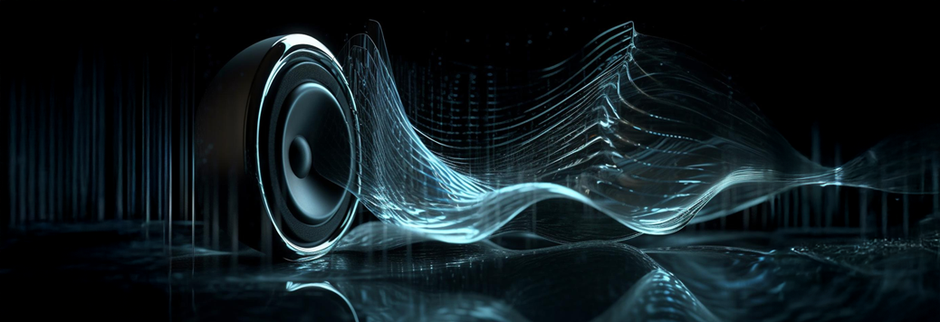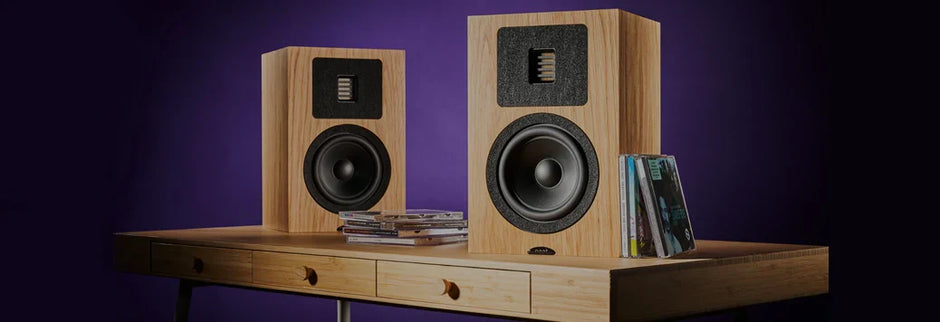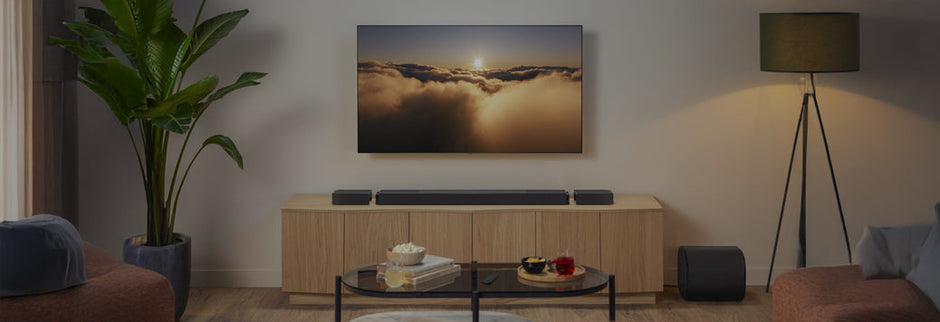Whether you're an audiophile or just someone who appreciates good sound, finding the right speaker can make all the difference. If you're looking for a compact yet powerful audio solution that fits perfectly into smaller spaces, bookshelf speakers are an ideal choice. Designed to deliver high-quality sound without overwhelming your room, these versatile speakers are perfect for music lovers, movie enthusiasts, or anyone who wants to upgrade their audio setup without sacrificing space. But with so many options on the market, choosing the right pair can feel overwhelming and it’s sometimes not clear what the right questions to ask are. Don't worry, in this guide, we’ll discuss how to choose bookshelf speakers for your listening needs and answer some of the most common questions we get asked..
Should I choose bookshelf speakers based on size?
Before we tell you how to choose bookshelf speakers, let’s understand the significance of size while choosing bookshelf speakers. When choosing bookshelf speakers, size plays a crucial role in determining their sound quality and suitability for different spaces. Larger speakers generally deliver more robust bass, while smaller bookshelf speakers excel in providing clarity in confined areas. By understanding your room's acoustics and your audio preferences, you can select the right speaker size to optimise your listening experience.

- Bedroom Setup: For a bedroom or smaller room, opt for speakers with a woofer around 4-5 inches. These are ideal for delivering clear highs and mids without overpowering the space. Models like the Elac Carina BS243.4 or Dali Oberon 1 fit well in such environments, providing balanced sound for relaxation.
- Living Room Setup: In a living room, consider slightly larger speakers, or pair smaller ones with a subwoofer to enhance bass. For near-field listening, compact speakers work well, but for filling the entire room, look for speakers with 6-8 inch woofers. Options like KEF Q350 or Bowers & Wilkins 606 S3 are excellent choices. Smaller drivers are perfect for close-up listening, while larger rooms benefit from more powerful speakers or subwoofers for a fuller sound. Ultimately, the speaker size should match your room's dimensions and your listening preferences, ensuring a comfortable, immersive audio experience.
Also Read: Choosing Between Bookshelf and Floorstanding Speakers
Should I get passive or active bookshelves and why?
Now, let's talk about the brains of the operation: the amp. Bookshelf speakers come in two main types: passive and active.
- Passive: These speakers require a separate amplifier or receiver to power them. This gives you more control over the sound, but it adds another piece of equipment to your setup.
- Active: Active speakers have the amplifier built-in, making them a breeze to set up. They're also often more compact, perfect for space-conscious setups.
What type of amplifier should I match with my bookshelf speakers?
If you choose the passive amplifier, here's what to consider when picking your amp:
- Power Play: Match the amp's power output to the speaker's power handling capabilities. Too little power, and your speakers might distort at high volumes. Too much power, and you risk damaging them. Check the speaker's specs to find their recommended wattage range.
- Frequency Fanatic: The amp's frequency response should ideally match the speaker's. This ensures all sound frequencies are amplified equally, resulting in a balanced soundscape. Most bookshelf speakers cover a wide range, but it's always good to double-check.
- Eye Candy: Don't underestimate the aesthetics! Choose an amp that complements the look of your speakers. Remember, your audio setup should be pleasing to both the ears and the eyes!

Image credit - SpatialAudio
What features should my amplifier have?
When selecting an amplifier for your bookshelf speakers, you’ll want to focus on several important features that directly impact sound quality and user experience. These apply specifically if you’re using passive speakers, which require an external amplifier to function. If you’re opting for active speakers with built-in amplification, some of these may not apply, but they’re still worth understanding.
- Wireless Connectivity: Many modern amplifiers come with Bluetooth or Wi-Fi, allowing you to stream music directly from your devices without needing any cables. Look for models that support high-quality wireless audio, ensuring you get the best possible sound when streaming from your phone, tablet, or computer.

Image credit - Sonos
- Bass Boost: If you’re someone who craves deeper bass, some amplifiers offer built-in bass boost features. This allows you to enhance low-end frequencies without needing an external subwoofer, giving your music more depth and power when you want it.
- App Control: Certain amplifiers come with companion smartphone apps, giving you control over various settings such as EQ adjustments, volume, and even room calibration. These apps can make it easier to fine-tune your sound from anywhere in the room, offering a more customised listening experience.
- Amplifier Compatibility with Streaming Services: One of the most convenient features to look for is compatibility with popular music streaming services like Apple Music, Spotify, and Tidal. Some amplifiers allow you to connect directly to these services, so you can stream your favourite playlists without needing additional devices.
Also See: Floorstanding vs. Bookshelf Speakers - What’s Better? | Ooberpad
Is there anything else I should consider?
Now that we've covered the essentials, let's explore some additional factors:
- Placement is Key: Speaker placement plays a huge role in sound quality. Ideally, place your speakers at ear level on sturdy stands, angled slightly towards you. Experiment to find the sweet spot!
- Room Acoustics Matter: The shape and furnishing of your room can affect sound. Consider adding soundproofing materials like rugs and curtains if your listening space is prone to echo.
- Source Material Makes a Difference: Garbage in, garbage out! Low-quality MP3s will never sound amazing, even on the best speakers. Try high-resolution audio files or lossless streaming services for the best listening experience.
Best Bookshelf Speaker Brands to go for?
Feeling overwhelmed by all the choices? Don't worry, we've got you covered! Here are some of the Best Bookshelf Speaker Brands known for producing excellent bookshelf speakers:
- Elac: This German brand consistently delivers outstanding sound quality and value. Their Carina line is particularly popular for its combination of performance and affordability.
- Bowers & Wilkins: B&W is among the best bookshelf speakers brands. B&W is known for its luxurious designs and exceptional sound. Their 606 S3 speakers are a great choice for those seeking a premium listening experience.
- Dali: Danish brand Dali is renowned for its natural-sounding speakers. Their Oberon series is a great entry point into the world of high-end audio.
- Definitive Technology: This American brand offers a wide range of speakers, including the D11 Demand Series, which is perfect for those who want powerful sound in a compact package.
- KEF: Another British brand, KEF is known for its innovative designs and exceptional sound quality. Their Q350 speakers are a popular choice for their compact size and powerful performance.
- Polk Audio: This American brand offers a good balance of sound quality and price. Their R200 speakers are a great option for those who want a solid-performing bookshelf speaker without breaking the bank.
Choosing the right bookshelf speakers is a personal journey, but with this guide, you're well-equipped to make an informed decision. Remember, the best speakers are the ones that bring you joy and enhance your listening experience. So, go ahead, explore the options, listen to your heart, and build the audio system of your dreams!







